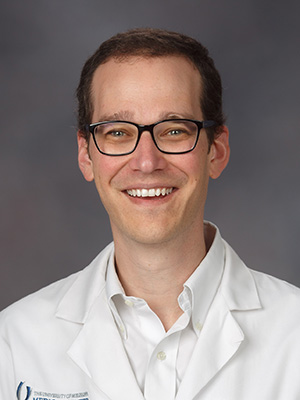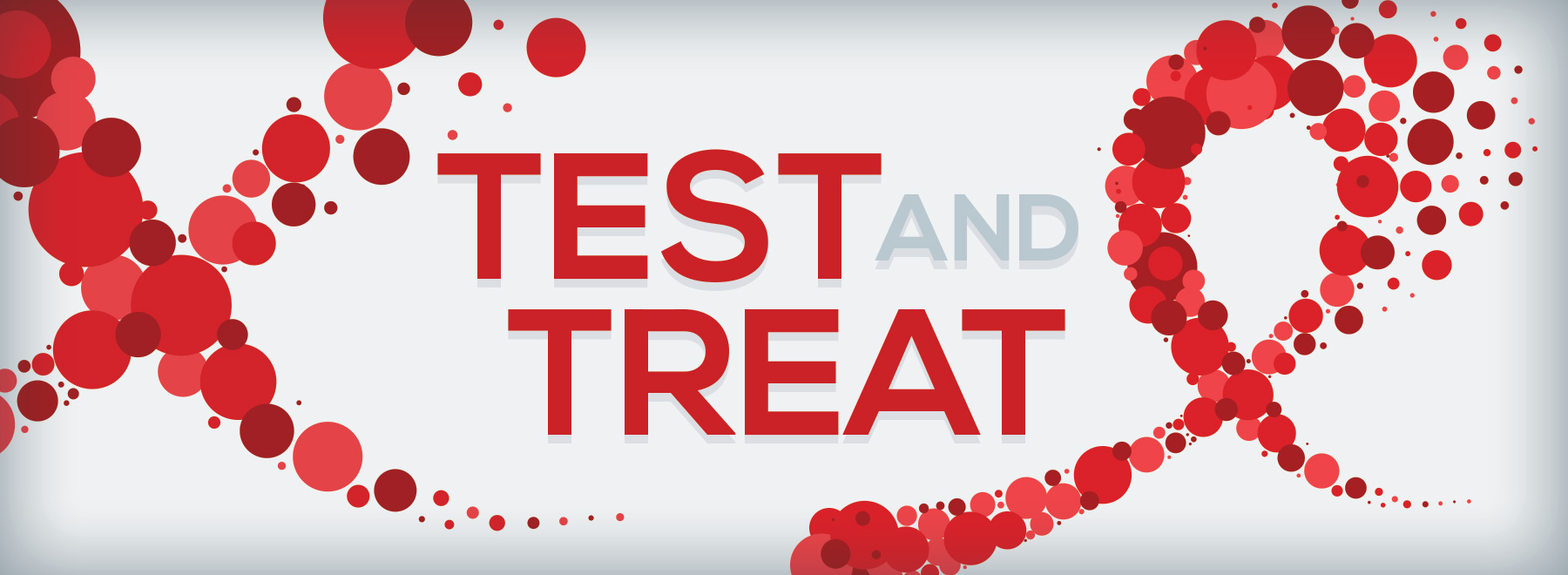Free HIV testing provides answers for patients' health
The UMMC Express Personal Health Clinic is encouraging Mississippians to know their HIV status by offering free screenings and prizes for attendees from Dec. 2-6.
Mississippi continues to rank among the highest in the nation for new HIV diagnoses, with 18 new cases per 100,000 people in 2022. Despite the high prevalence, an estimated 60% of Mississippians have never been tested for HIV.
The EPH Clinic, located in the Jackson Medical Mall, provides quick, easy, and free sexual health screenings. Open Monday through Friday from 8 a.m. to 4:30 p.m., EPH offers a convenient, judgment-free environment for anyone looking to take charge of their sexual health.

“HIV screening is something everyone should do at least once in their life, no matter their risk level” said Dr. James Brock, professor of medicine and infectious disease specialist. “Our clinic makes it simple—walk-ins are welcome, and we offer free services with no financial assessment.”
If left untreated, HIV can weaken the immune system over time, leading to AIDS and making the body more vulnerable to life-threatening infections and diseases. Early detection through regular screenings allows for timely treatment, which can stop the progression of HIV and prevent its spread.
“The CDC estimates anywhere from 13-20% of patients who have HIV don’t even know that they have it,” said Laura Amos, a clinical research nurse at the clinic. “So, if they can be screened and we can get them on medication before those long-term effects of the disease are seen, they’re going to have a longer, much higher-quality life.”
According to the World Health Organization, behaviors and conditions that put people at a higher risk of contracting HIV include: having unprotected sex; having another sexually transmitted infection such as syphilis, herpes, chlamydia, gonorrhea and trichomoniasis; and sharing contaminated needles while using injectable drugs.
Prevalence of HIV is the highest in gay, bisexual and other men who have had sexual contact with men. In Mississippi, African Americans bear a disproportionate burden of HIV/AIDS. While making up only 38 percent of the state’s population, they represent 78 percent of Mississippians who have contracted HIV.
Despite the benefits of HIV testing, stigma continues to be a major obstacle for many people. But the EPH clinic is designed to offer a discrete, comfortable environment where patients feel safe.
“We do have the anonymity of being tucked into the third floor of the Medical Mall, so you’re not going to run into someone you know in the waiting room,” said Amos. “You have to be looking for us to find us. So, patients feel like their health information is protected, even if they are just being screened out of precaution—they monitor it regularly and feel like we are a good environment to help provide discretion and that reliable information.”
Many patients travel to the clinic from rural areas because they value the privacy it provides.
“In smaller clinics, people may run into someone they know and that keeps them from getting tested,” said Rashad Pollard, HIV outreach specialist and PrEP navigator. “Patients feel safe at our clinic because they know their health information is protected.”
He emphasizes that HIV testing is a normal and responsible part of maintaining overall health. “Getting tested doesn’t mean you’re gay or promiscuous,” said Pollard. “It just means you’re concerned about your health. We are not here to judge you or criticize you or do anything other than promote your health in every way that we can.”
Getting tested is important for everyone—not just those traditionally considered at higher risk. Brock said that more than 60% of patients being treated at the Special Care Clinic contracted HIV through heterosexual contact.
“I think that’s the more unnerving thing—the random heterosexual person in Mississippi who tests positive for HIV because, often, their risk factors are not as clear."
Patients visiting the express clinic can expect to be in and out in 20-30 minutes. If their rapid test results are positive, it may take longer for clinic staff to discuss treatment options with them. Follow-up care is offered at the Adult Special Care Clinic, located on the second floor of the Jackson Medical Mall.
“When I first started working with Dr. Brock, something he said really stuck with me,” Amos said “He said, ‘HIV is not a death sentence anymore. If you are willing to take your medication every day, there is no reason why you have to get sick from HIV.’
“So where 30 or 40 years ago, you heard HIV and it was a death sentence because there was so much unknown. There have been so many wonderful, amazing advancements in the treatment of HIV that our patients can still have a good-quality, long life.”
The clinic is located in the Jackson Medical Mall on the third floor, Suite 3210. For more information or to schedule an appointment, call 601-815-5861.
The above article appears in CONSULT, UMMC’s monthly e-newsletter sharing news about cutting-edge clinical and health science education advances and innovative biomedical research at the Medical Center and giving you tips and suggestions on how you and the people you love can live a healthier life. Click here and enter your email address to receive CONSULT free of charge. You may cancel at any time.



